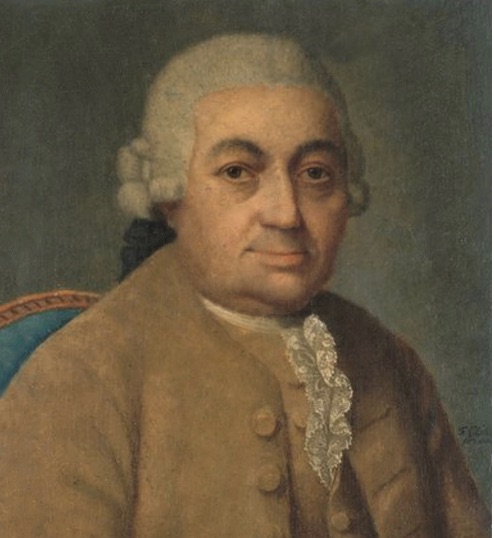
C. P. E. Bach was born on March 8, 1714 in Weimar in present-day Germany to Johann Sebastian Bach and his first wife, Maria Barbara. He was one of four Bach children to become professional musicians; all four were trained in music almost entirely by their father. At the age of 10 he entered the St. Thomas School, Leipzig, where his father had become cantor in 1723. By the age of 24, Carl had completed advanced studies in jurisprudence, but abandoned law to pursue a career in music.
An appointment by Frederick the Great of Prussia eventually led to his membership in the royal orchestra at age 26. He was soon recognized as one of the best clavier-players in Europe, playing his own compositions, including about thirty sonatas and concert pieces for harpsichord and clavichord. Prominent among Bach’s works in the classical repertoire are his keyboard sonatas. His best known work is perhaps the Solfeggietto, composed in 1766.
In 1768, C. P. E. Bach became Kapellmeister at Hamburg, succeeding Georg Philipp Telemann. His compositions spanned the Baroque and Classical periods of instrumental music. Through the latter half of the 18th century, the reputation of Emanuel Bach continued to grow, and his stature among his contemporaries prompted Mozart to say, “He is the father, we are the children.”
